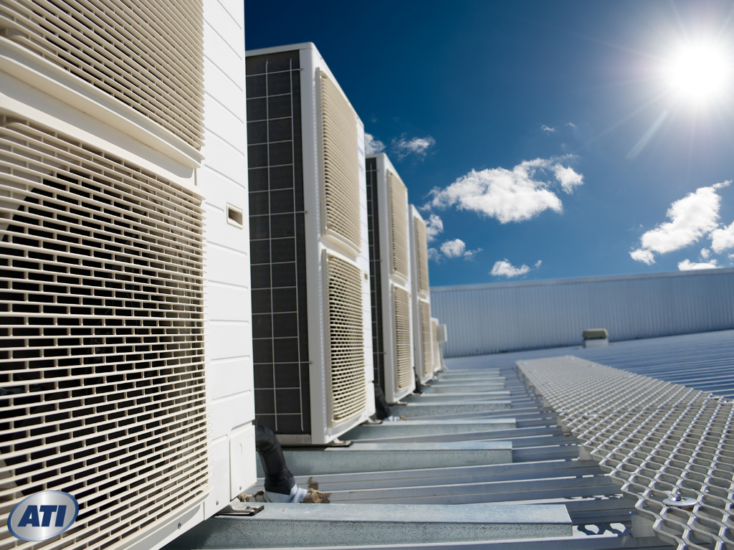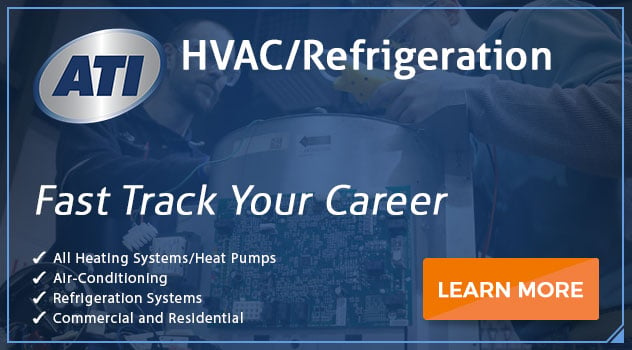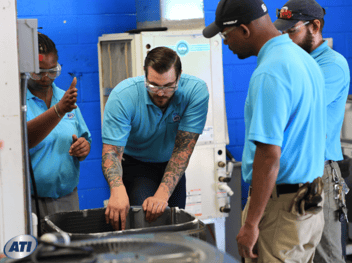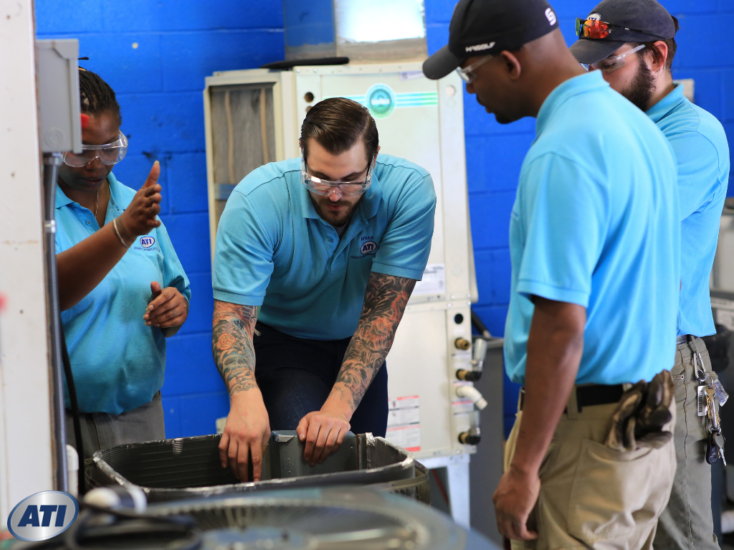HVAC Schools in Virginia: What Should I Look for in a School?

You’ve already decided a career as an HVAC (heating, ventilation, air conditioning) professional is what you want. You’d like to begin living your life as soon as possible, but you also know long-term career success – advancement, management, even ownership – begins with education.
You need a degree to stay on a fast track to greater success. But a HVAC degree can take from 3-5 years. To accelerate your career, you need to find an accelerated degree program, too.
Accelerated Degree Advantages
An accelerated degree program may offer on-campus housing, but many students live at home to save money. Some may already have part- or full-time employment. Time is the biggest advantage. You will be working and earning a HVAC professional’s salary sooner, rather than later.
Your classes are the same as traditional college classes. But more information is packed into every class, every day.
Accelerated programs often incorporate “blended learning.” This is perfect for today’s technologically savvy students. Classroom time may be integrated with online learning, taped lectures, at-home reading, and internships.
Money savings is another accelerated degree program advantage. Look for a school that offers financial assistance, especially if you’re active or retired military.
Look for HVAC Hard Skills Classes
There are HVAC basics that form the foundation for a solid education. “Hard skills” are what you learn through formal education and hands-on training.
You need a school that will offer the hard skills you need to be able to work efficiently at entry-level with little supervision. With today’s technology, you’ll never stop learning and training to keep up with advanced HVAC systems.
Core classes should include:
- Air conditioning
- Air movement
- All-weather systems
- Refrigeration, commercial
- Direct digital controls
- Refrigeration, domestic
- Electricity, circuits, and schematics
- Fundamentals of technology
- Heat pumps
- Heating systems
- HVAC installation
- HVAC repair
- HVAC troubleshooting
- Pipe brazing/ducting
- Safety, science, and principles of air conditioning
- Sheet metal fabrication
You Need Soft Skills for Career Advancement
The Virginia HVAC school you select should not be a “Take the money and run” institution. All-important “soft skills” should be part of its curriculum. Soft skills are sometimes called “people skills.”
Vocational schools often bypass soft skills classes, and these are the very proficiencies you need for advancement and promotions. If you ever want to manage or own your own HVAC company, you’ll need excellent soft skills to succeed.
Classes that will help you develop soft skills include:
- Computer applications
- Ethics/accounting
- Industrial psychology
- Management/service
- Speech principles
- Technical writing
ATI of Virginia for Professional Career Development
We spend many hours doing what we do; our jobs are an important part of who we are. That’s why people who want more than “just a job” will always be business and service leaders in their communities.
You could earn your Associate in Occupational Science (AOS) degree in Heating, Ventilation, and Air Conditioning (HVAC) Technology in as little as 21 months. You could gain practical, real-world business skills (employee relations and management, inventory management, financial reporting, etc.) as well as industry-related experience using modern test equipment and tools.
Sound good to you? Connect with a friendly admissions advisor today to learn more about your options!

Industry Knowledge
Welcome to the Advanced Technology Institute's Blog, your resource for industry insights and discussions on technologies shaping the future of automotive, heavy vehicle, hvac, welding, and other related career paths.
Explore how ATI's curriculum and hands-on learning opportunities can propel your career in the tech-driven world.





